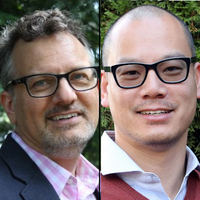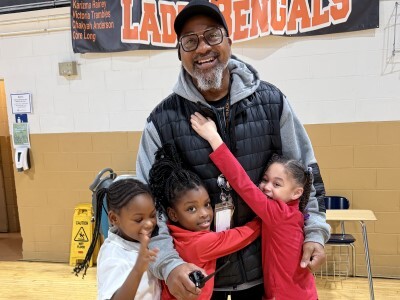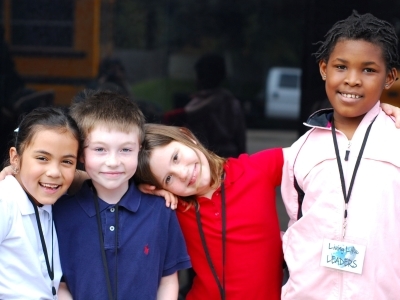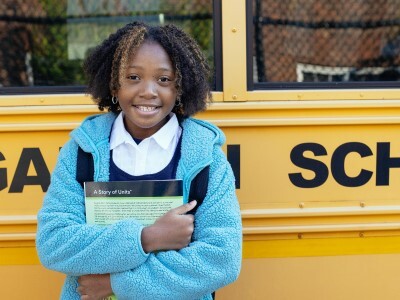A Learning Journey: Student-Led Experiences Bringing Community and School Together
Topics
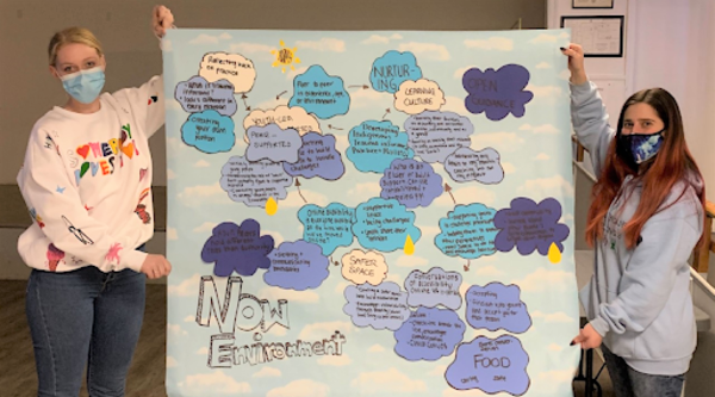
When educators design and create new schools, and live next gen learning themselves, they take the lead in growing next gen learning across the nation. Other educators don’t simply follow and adopt; next gen learning depends on personal and community agency—the will to own the change, fueled by the desire to learn from and with others. Networks and policy play important roles in enabling grassroots approaches to change.
Abbotsford School District is on a journey of system change with youth actively contributing to decisions traditionally made without meaningful input from students.
NOTE FROM THE AUTHORS: This blog post was written (in a hurry, as always) in partnership with youth, who insisted that the language be "people-friendly." They encourage you to do the same, no matter to which audience you think you might be writing.
Relationships Matter…
As a non-profit organization, Matsqui-Abbotsford Impact Society (Impact) has been supporting youth and adults (separately and increasingly cross-generationally) with a vision to create “a community that recognizes and responds to substance use needs as a complex issue best addressed through conditions that allow for resiliency.” Through counselling, youth advocacy, and street community support using trauma-informed approaches, resiliency factors, and motivational dialogue, Impact has been working to create communities of care for youth.
Since 2014, Impact, based in Abbotsford, British Columbia, has been experimenting with work informed by research on factors that allow people to be resilient (to bounce back and even learn and grow from challenges). The research paper by Brown, Jean Marie, & Beck (2010) summarizes these factors:
- Caring, connected relationships in which there are opportunities to participate and contribute…
- Leading to developing higher expectations of how you'll perform when faced with challenges.
Impact's youth projects have been progressively more youth-led, starting with "youth-adult partnership," moving to "power-sharing," to "youth-led, adult-supported," and now with what the youth call a "youth-trusting" approach.
In Impact's first three-year Health Canada-funded project, not many schools were ready to get involved. But the project led to the region’s first completely youth-developed conferences, which staff from local school districts did attend. People left these conferences thinking differently about the roles young people can play in their communities. Some attending school staff moved into administrative roles, where their experiences with this work challenged them to try to do things differently.
During Impact's next project, the Abbotsford School District agreed to provide a building to host a much-evolved youth-led conference. This conference focused on topics not often discussed at any community conference, let alone one where youth were facilitating workshops based on their lived expertise of issues like domestic violence, self-harm, substance use-related harm reduction, borderline personality disorder, Indigenous healing modalities, gender fluidity, etc.
Since 2019, the Abbotsford School District's direction, accelerated by their participation in the Deeper Learning Dozen Project (Mehta et al., 2018), has been to commit to understanding and challenging ideas about how learning occurs in the classroom. Together, the readiness of the school district and the commitment and resolve of the youth involved in Impact has led to a positive, caring relationship, focused on creating opportunities for dialogue and change around schooling and the student experience.
As the relationship drew closer, youth started asking questions like, “Is the school district going to just be involved when it’s easy, or are they really committed?” After admitting that big systems like school districts often change slowly, and that, technically, power rests with an elected Board of Trustees, the answers from the school district kept coming back with full commitment (likely only possible due to the accumulation of trust from taking chances on each other over many years).
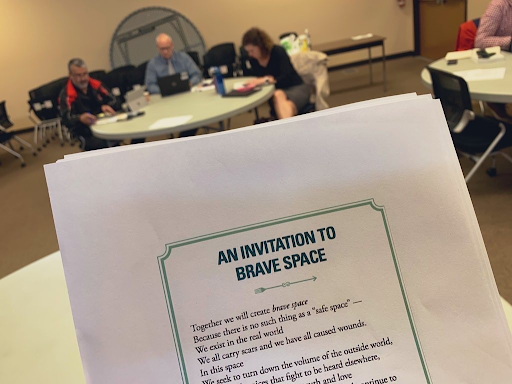
Working with our school leaders to engage them in listening to the voices of students in October 2020 (Nathan Ngieng)
Stepping into Uncertainty
At the end of 2019, when Impact started a new project (Nation of Wellness [NoW], funded by the Public Health Agency of Canada), these spoken commitments got their first test. The Abbotsford School District invited Impact to support them in addressing a sensitive school issue (vaping on campus) with a youth-led approach (agreeing to defer to Impact/NoW’s expertise).
Principals and vice principals from across the district’s six high schools were instructed to bring… not their “leadership” students, but what might be called their “opinionated” students, to a first meeting.
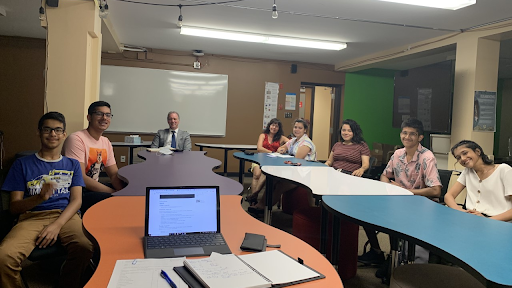
Discussing the partnership and NoW project in August of 2020 (Nathan Ngieng)
The Experience from the Perspective of Matsqui-Abbotsford Impact Society
Honestly, we at Impact hadn’t had much time to work out all the details (school districts can go hardly anywhere… very quickly and on a very tight schedule), but by the time we arrived for the first meeting, our youth employees had decided that, to make the experience authentic and safe, we must initially break up the young people/students from the adults/school authorities.
To say that the administrators were excited about this surprise requirement would be to go too far. But they quickly figured out that they were either in or out. They decided to be in… by going out… to have their own meeting with one of our adult staff. The youth met, facilitated by Impact's youth staff, with no district supervision (though Impact's adult executive director was in the meeting).
After the adults and youth had their own meetings, we brought the two groups together to debrief and dialogue. There were three meetings on this topic (before COVID), and both student and school staff attendees noted that each meeting became more honest and open. They even reached a level of candor (including some open disagreement and strong expressions) that attendees labelled “growing trust.” Everyone agreed it was unlike anything they had experienced in a school setting between staff and students.
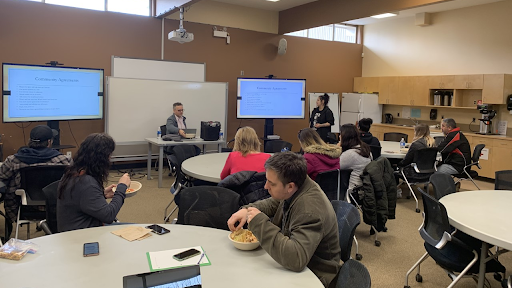
First meeting for the Vaping on Campus project outlining our community agreements in February 2020 (Nathan Ngieng)
The Experience from the Perspective of the Abbotsford School District
Staff, students, parents, and the health authority were alarmed about the increasing vaping occurring on campus in our secondary schools. Approaching the issue through restrictions and punishment was damaging relationships between staff and the very youth about whom they were most concerned. We were looking for new ideas.
We decided to reach out to Impact to see if they would be willing to facilitate an experience, bringing together youth from multiple schools with school administrators. We weren’t sure what this would look like, but building on our trusting relationship, decided we were willing to step into the discomfort of uncertainty.
The process was one of shifting roles, where we moved to a truer sense of partnership and acknowledgement of the contributions that youth can make toward a school/community issue. It was uncomfortable (or down right anxiety producing) to be separated from the youth—shifting our understanding of what a caring adult can do to support youth. We “survived” the experience, growing to appreciate the resilience of the youth and to understand how our perspective and even just our presence can restrict or enhance the authenticity and autonomy of our youth. In the end, we discovered we had more in common than in conflict with the opinions of the youth around vaping on campus and developed a new appreciation for the process Impact Society provided.
What NoW?
The disruptions of COVID sucked the meaning out of the “vaping on campus” topic, but the pandemic made everyone wonder if there might be opportunities within its threats.
This video summarizes some places we have gone… together and apart… in search of pandemic cracks in the system we might exploit.
In phase 1 of NoW (2019-2022), the school district offered youth unprecedented opportunities to participate in and contribute to decisions that the district had traditionally made without meaningful input from students. The youth saw the school district consider, question, and then ultimately run with their advice… even when it ruffled some feathers and went against long-standing tradition. These experiences taught both the youth and adults that system change (like most individual change) is not an event but a process. And as a process, it will have its ups and downs, and therefore will rely on everyone's resilience (and the resiliency factors identified above).
In phase 2 of NoW (2022-2024), we would like to see NoW youth contributors and community partners (including the school district) more intentionally helping each other understand these three aspects of system change:
- Why and how the changes we're trying to make are challenging,
- The resiliency that committing to challenging changes requires, and
- The role that caring, connected relationships and opportunities to participate and contribute can play in supporting this resiliency.
It is easy to get stuck on (and frustrated with) WHAT needs to change. We want to put an equal emphasis on understanding HOW change must be supported.
Photo at top by Mai Berger: Outcomes from the youth-led meeting for the NoW project at Impact in March 2022

